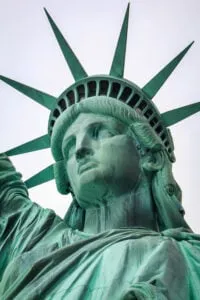Have you ever gazed up at the night sky, mesmerized by millions of stars twinkling like diamonds on a black velvet cloth? Stargazing is more than just a pastime; it’s a journey to explore the vast universe, sparking curiosity and connecting us with the wonders of nature. If you thought New Jersey, with its bustling cities, isn’t ideal for stargazing, you might be surprised. The Garden State harbors many fantastic locations to admire the beauty of the night sky, away from city lights and immersed in the tranquil space of the universe.
Why New Jersey is an Ideal Stargazing Destination
Despite New Jersey’s fame for its bustling urban areas and lively coastlines, the state still preserves wild, low light pollution areas, creating ideal conditions for stargazing. From vast national forests to tranquil state parks, New Jersey offers diverse options for astronomy enthusiasts and those seeking memorable stargazing experiences.
One of the most critical factors for successful stargazing is finding a location with low light pollution. Light from cities, residential areas, and streets can obscure the faint glow of stars, making observation more difficult. Fortunately, New Jersey has many areas far from major urban centers where you can enjoy a clear night sky and admire countless stars.
The Best Stargazing Locations in New Jersey
Here are some locations highly rated by the astronomy community in New Jersey, where you can fully experience stargazing:
Wharton State Forest
Wharton State Forest, the largest national forest in New Jersey, is an ideal destination for those wanting to escape the hustle and bustle of city life and immerse themselves in wild nature. With over 125,000 acres, Wharton State Forest has remote areas with extremely low light pollution, creating excellent conditions for stargazing. You can find clearings in the forest, lakeside spots, or trailsides to find your ideal stargazing location.
Delaware Water Gap National Recreation Area
Delaware Water Gap National Recreation Area, located along the Delaware River, is a stunning nature preserve with diverse landscapes ranging from mountains and dense forests to rivers and lakes. With its vast area and few residential areas, the Delaware Water Gap is one of the best stargazing spots in New Jersey. You can find roadside stops, campsites, or mountain viewpoints for panoramic night sky views.
Jenny Jump State Forest
Jenny Jump State Forest, although smaller than Wharton State Forest and Delaware Water Gap, is famous for the Jenny Jump Observatory. This observatory, owned by the North Jersey Astronomical Group, regularly hosts free public stargazing events on Saturday nights. This is a fantastic opportunity to use professional telescopes and learn more about astronomy from experts. Even when the observatory is closed, the area around the park is a good spot for stargazing with the naked eye or personal telescopes.
Brendan T. Byrne State Forest (Pine Barrens)
Brendan T. Byrne State Forest, also known as the Pine Barrens, is a unique ecological area with pine forests and vast wetlands. Similar to Wharton State Forest, the Pine Barrens has low light pollution and open spaces, ideal for stargazing. You can explore hiking trails or find lakeside areas in the forest to find a quiet and pristine stargazing location.
High Point State Park
High Point State Park, located at the highest point in New Jersey, offers stunning panoramic views of the surrounding countryside. With its elevation and unique geographical location, High Point State Park is an attractive stargazing spot. You can stargaze from the top of the High Point Monument or find less wooded areas around the park for a wider view.
Tips for Successful Stargazing in New Jersey
For a complete and memorable stargazing experience in New Jersey, keep in mind these tips:
- Check the weather forecast: Choose clear nights with few clouds and no rain for the best visibility.
- Learn about the lunar calendar: Avoid full moon or near-full moon nights, as moonlight can reduce the contrast of the night sky and make stars fainter. New moon or moonless nights are ideal for stargazing.
- Use a light pollution map: Search for online light pollution maps to identify areas with the lowest light pollution in New Jersey. Areas marked green or blue on the map are usually good stargazing spots.
- Arrive early and let your eyes adjust to the darkness: Arrive at your stargazing location about 30 minutes before it gets completely dark to give your eyes time to adjust to the darkness. Avoid using bright flashlights or looking at phone screens during this time, as bright light can reduce your eyes’ night vision. If necessary, use a red flashlight, as red light affects night vision less than white light.
- Bring necessary equipment: If you want to observe more distant celestial objects, bring binoculars or a telescope. Additionally, you should bring a comfortable seat, blankets or warm clothing (especially in winter), snacks, and drinks. Astronomy mobile apps can help you identify constellations, planets, and other astronomical objects in the night sky.
- Respect nature and the environment: When stargazing in natural areas, keep them clean, do not litter, and avoid making loud noises that disturb wildlife and others around you. Follow park or conservation area regulations and always prioritize safety.
Conclusion
Stargazing in New Jersey is a fantastic experience, offering you the chance to discover the magical beauty of the universe right near your doorstep. From pristine national forests to tranquil state parks, New Jersey has many ideal locations for you to admire the starry night sky. Plan a stargazing night, prepare well, and enjoy the moment of connection with the vast universe; you will discover a different, peaceful, and inspiring side of the Garden State.
